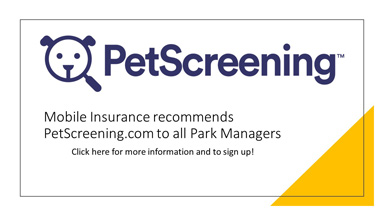
Community-owned homes can be a good investment for your business, but you must manage them well. While community-owned homes have the potential to have a higher profit margin, they come with a specific set of responsibilities you need to be aware of. If you are just starting out with community-owned homes, it’s important to know what you are responsible for and what the tenant is responsible for so you can keep your tenant happy, protect your investment, and ensure your business is profitable.
Choosing Tenants
When it comes to how you manage community-owned homes, screening tenants is one of the most important steps. Choosing a good tenant who respects the property is more likely to pay rent on time, live there long term, and take care of the home. You should start by having potential tenants fill out an application that includes rental and employment history, and verify their income. It is also important to perform criminal background and credit checks.
Maintaining Homes
When you own the home being rented, routine maintenance falls to you. Performing this maintenance will help you avoid expensive and extensive repairs. Create a maintenance schedule for the homes your community owns to help you stay organized and catch any issues early. Preventative maintenance for community-owned homes should include:
- HVAC Servicing
- Roof Inspections
- Plumbing Inspections
- Skirting and Siding Inspections
- Smoke Detector Checks

Keeping Records ***CRITICAL TO HAVE WHEN YOU ARE SUED**
Staying organized and keeping good records can make a big difference when it comes to running your business and how you manage community-owned homes. Good documentation can be overlooked but it’s a MUST when it comes to budgeting and protecting your investments.
Records you should keep for your community-owned homes:
- Maintenance: Dates, What Work Was Done, Costs, Warranty Information
- Tenant Information: Complaint/Maintenance request logs, Lease Agreements, Communication, Rent History, Inspection Reports, Maintenance Requests
- Insurance: Policy Information, Certifications, Permits and Licensing, Claims and Incident Reports
Compliance
If you are not in compliance with housing codes and renting laws, your business could face hefty fines and it could hurt your reputation. Check local, state, and federal landlord-tenant laws to ensure you are in compliance with the ones that apply to your business.
These laws can vary from state to state but here are some common landlord-tenant laws:
- Landlords Must Maintain Safe and Livable Conditions: This includes plumbing, electrical, and cooling/heating systems and ensuring the home is leak-free. Be sure to check local housing laws.
- Right to Privacy Laws: Many states require you to notify the tenant in advance before entering the home and can only enter for reasonable purposes such as repairs or inspections.
- How and When You Can Increase Rent: You must give advance notice for rent increases and most states restrict how often and how much you can increase rent.
- Security Deposit Requirements: There are laws surrounding how security deposits are handled. There is often a maximum amount allowed and you must give an itemized list for deductions when the tenant moves out. You usually have to give the deposit or itemized list to the tenant within 30 days of move-out.
- Evictions: Most of the time a written notice and a waiting period are required.
Insurance Needs
Owning the homes means your risk and liability increase. It is essential to make sure you have the right insurance coverage. Clean, well kept and newer rental homes mean lower premiums and broader coverage. Older homes with significant deferred maintenance are a recipe for problems, including large financial losses.
Policies you need for community-owned homes:
- Property Coverage: Covers damage such as wind, fire, hail, and vandalism
- Liability Coverage: This is used if the tenant or guest is injured in the home.
You can require tenants to carry their own renter’s liability insurance.
It takes time and effort to manage community-owned homes, but when done right, it can be profitable and worth the investment. When you ensure the proper steps are taken, such as having the right insurance coverage and screening tenants, you can reduce risk.
For more tips on managing your manufactured home community, visit our resources page here, and learn more in our blog here.

